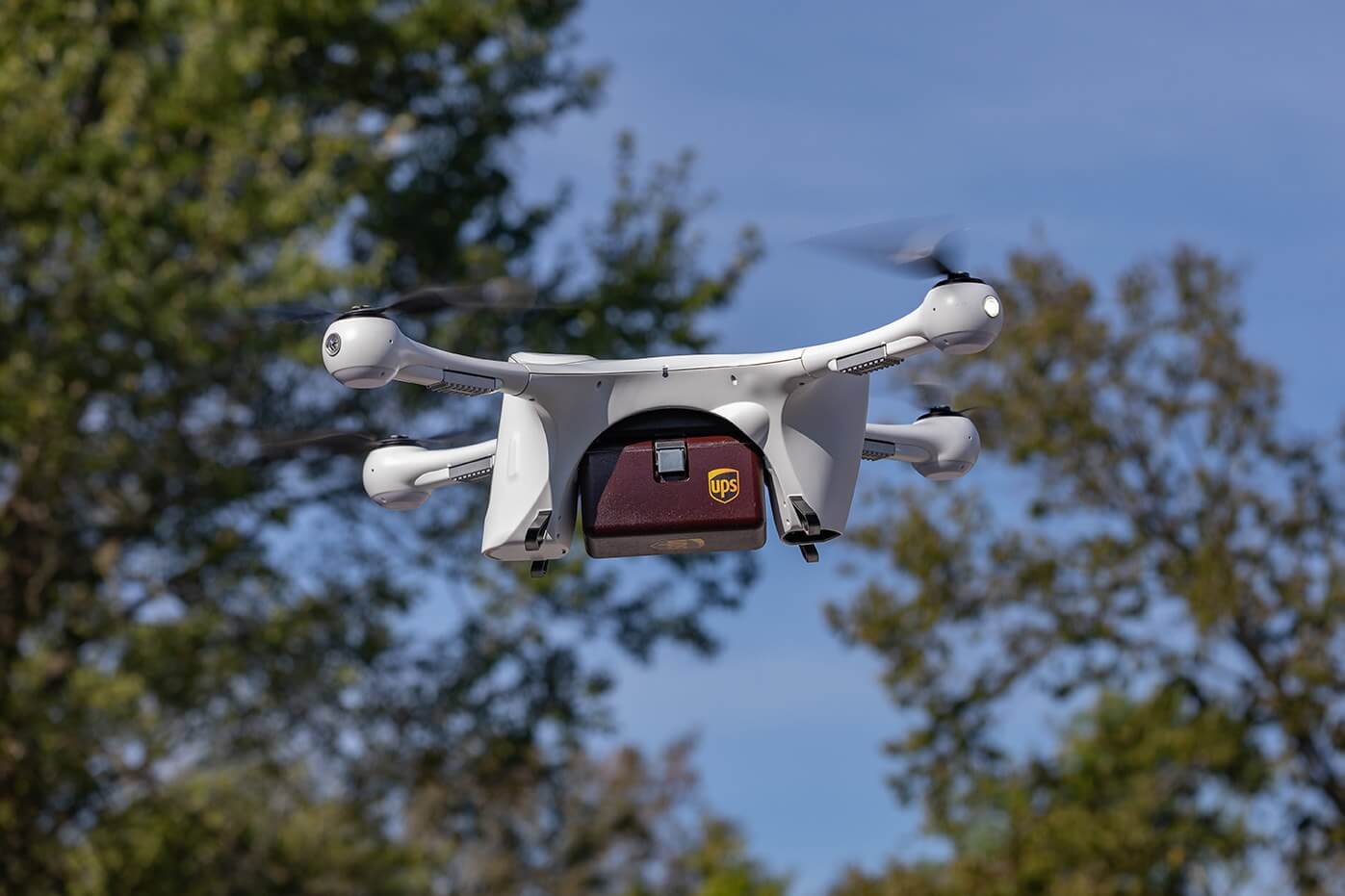In brief: Amazon isn't the only company in the shipping industry that's looking to the skies to boost its efficiency – UPS is following suit. According to an announcement published yesterday by the shipping giant, UPS has received permission from the United States Federal Aviation Administration (FAA) to begin using airborne drones to deliver packages.
This permission was granted under the FAA's Part 135 Standard certification, which allows the UPS to operate a "drone airline." UPS says it is the first company to receive this full certification, which could be a significant competitive advantage – the certification lets the company operate as many drones as it wants during the day or night.
The only major restriction of note, it seems, relates to weight: no one UPS drone can carry more than 55 pounds of cargo in a single trip. This probably isn't too much of a roadblock, though, as UPS' drones seem to be quite small for the time being (see them in the Twitter video below).
#UPS makes history again! Today we become the 1st company to gain full approval to operate a drone airline. Check out this video for more about UPS Flight Forward. #Growth #Technology #UPSFleet pic.twitter.com/KRJHejTdQ9
--- UPSers (@UPSers) October 1, 2019
UPS doesn't plan to use its drones for door-to-door, consumer-oriented package delivery just yet. To start with, the drones will "support hospital campuses around the country," and eventually transport a "variety of items" for customers in "many industries." However, the latter goal may still be a ways off; UPS seems focused on healthcare operations for the time being.
And, for US residents, that will likely be a good thing. When real lives are on the line, fast transportation of important medical equipment or materials could be tremendously beneficial for healthcare providers. After all, a drone can't get stuck in traffic, and their small size makes them fairly maneuverable. Of course, one could also make the argument that such sensitive cargo should be transported using more secure methods.
Regardless of which camp you fall into, this is a significant step forward for the drone-based segment of the shipping industry. With UPS' latest announcement in mind, perhaps consumer-facing drone delivery efforts (like Amazon's Prime Air) will be able to proceed more smoothly by following in the company's footsteps.
